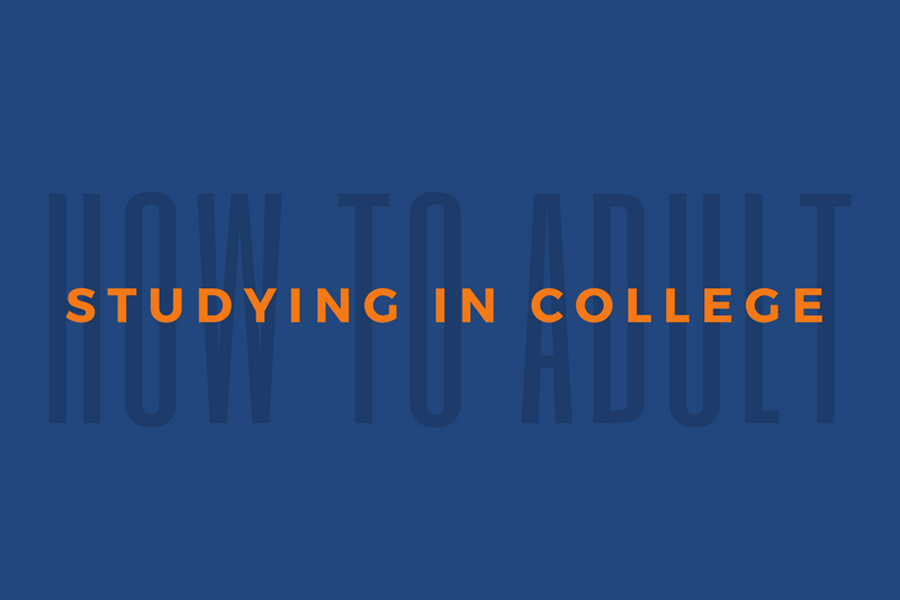Photo by Sara Gerges
Studying in college is a transition from studying in high school. Use these easy tips to help make that transition easier.
How to Adult: Studying in College
Roger Mancastroppa, associate director at the Academic Skills Center at the University of Richmond, thinks prior to college, students have been taught memorization is the best way to achieve success. Instead, Mancastroppa suggests students should start thinking and studying using more of a critical thinking model rather than memorization.
Studies show on average a high school senior studies about six hours a week. This number more than doubles in the next level of education as the average college student studies about 14 hours a week. The 2009 National Survey of Student Engagement found that 62 percent of college students studied less than 15 hours a week while receiving As and Bs. Yet, 33 percent of students surveyed felt that they didn’t know how to sit down and study.
The first step to learning better studying habits starts inside the classroom. If you leave class still confused or unsure about anything, then you will not be spending your time studying; you will be spending your time trying to teach yourself what you never originally understood.
Review your notes as soon as you get out of class.
There is bound to be gaps in your notes between your messy handwriting, weird abbreviations and sleep deprived, selective hearing. Fill in those gaps and ask your professor about them while the lecture is still fresh in your brain. If you wait until later, your notes will look like another language and studying will be harder.
Study in a way that suits your learning type. Some people learn things better by being able to visually see them. Others are auditory learners and have to hear the material for themselves. You don’t have to stick to the tried and true, read and highlight until you’re bored to tears.
Find ways to study that helps you understand and apply what you’re learning the best.
Another aspect of studying is focusing on your surroundings. You can’t get anything productive done in the wrong environment. Maybe, your two person dorm with seven electronic devices and a raging party going next door isn’t the best place to study for your pre-med biology class. Most people wouldn’t believe it, but most campuses have a nice quiet place with a lot of material and little distractions — it’s called the library.
Now, you’ve just moved out, and you’re dying to try out the new freedom you just got. Yet, with this, you stay up until 3 a.m. This causes you to wake up in a few hours, walk to class looking like death itself and sleep through almost all of class. Now, you’re not only behind, but you’re still tired later on in the day, so you take a nap. Meanwhile, you don’t end up waking up again until 12 a.m., so you’re bound to stay up all night, again. You could get your work done in the early hours in the morning, yes, but your brain isn’t nearly as cooperative as the night wears on.
The final piece to learning how to study efficiently would be time management. You have time for what you make time for. If you made it through a tv show with nine seasons in a night, you can definitely cram for your Psychology 101 exam. If you try logging what you do in every hour of the day, you’d be surprised how much time gets wasted. When you’re completely aware of how you spend your time, it is easier to get everything done in the 24 hours that you have.
